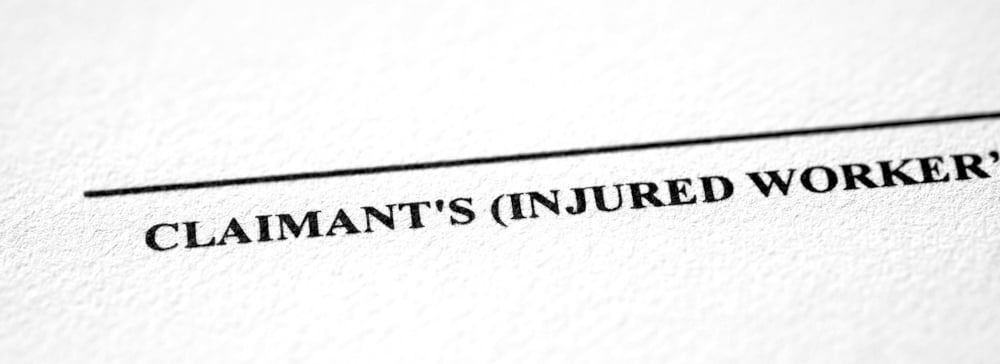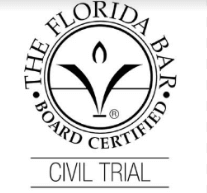Table of Contents
Every year, thousands of people in the Sunshine State are injured while on the job. Many of these injuries are a result of sudden accidents, but some are conditions are brought on gradually by repetitive motion or long-term exposure to workplace toxins. Whether you work outdoors, in an office, or in retail or restaurants— job-related injuries are covered by worker’s compensation, not by your personal health insurance.
A worker’s compensation lawyer at Kogan & DiSalvo can help you navigate the often-complicated workers’ compensation process and receive the benefits you deserve. Contact us for a free consultation today and find out what compensation is available for you.
How Does Workers’ Comp Work in Florida?

Workers’ comp provides medical benefits and lost wages to workers injured while on the job.
Who has to have it?
In Florida, all employers with four or more employees, including the business owners, must provide workers’ compensation insurance.
In the construction industry specifically — a field known for its high injury rate — employers with one or more employees, including business owners who are corporate employees or members of LLCs, must carry workers’ compensation insurance. In the agricultural industry, employers with at least six regular employees or 12 seasonal workers employed more than 30 days per season or 45 days annually must provide workers’ comp coverage.
What does the workers’ compensation law cover?
As per the Florida workers’ compensation statutes, the state legislature intends that the law be interpreted “so as to assure the quick and efficient delivery of disability and medical benefits to an injured worker,” as well as facilitating the worker’s return to gainful reemployment at a “reasonable cost” to their employer.
In return for having your employer’s insurer pay your medical expenses and a certain amount of your lost wages, you cannot usually file a personal injury lawsuit. This is the no-fault aspect of the workers’ compensation system. However, if a third party is liable for your injuries due to negligence or recklessness, you may file a personal injury lawsuit against that person or entity. To know if you have grounds for a personal injury lawsuit, contact a workers’ compensation lawyer.
What to Do After Suffering a Work Injury in Tampa

- Report your injury to your supervisor as soon as possible. If it is an emergency, go to the nearest hospital emergency room.
- Fill in the “First Report of Illness or Injury Form.” This form describes the accident and injury, along with your wage information. Your employer must submit this form to their insurance carrier within seven days of receipt.
- Other than a visit to the ER, you must go to a doctor authorized by your employer. You cannot go to your personal physician to receive treatment for on-the-job injuries if you want your medical expenses covered by workers’ comp. If you disagree with the diagnosis of the insurance company’s doctor, you may file for a change of doctor. A Tampa workers’ compensation lawyer can assist you with this filing.
- If possible, take photos or videos of your injuries and the site where the accident happened. Write down what happened while it is still fresh in your mind. If there are any witnesses, obtain their names and contact information. Keep a record of your injuries, treatment, and your response to care.
How to Properly File for Workers’ Comp in Tampa

Under Florida worker’s compensation law, you inform your employer of your injury within either 30 days of the accident or 30 days from the time you discovered that your injury was work-related. Failing to meet this deadline can mean your claim cannot go forward.
You might undergo an Independent Medical Examination (IME) conducted by a medical provider authorized by your employer’s insurer. While designed to be fair and objective, the IME doctor is chosen by the employer’s insurance carrier and paid by them.
It’s important to note that your company’s insurance provider may assign doctors who rule in their favor. If you feel as if the doctor has misdiagnosed or downplayed your injuries, it may be possible to get a second opinion; consult with your Tampa workers’ compensation lawyer to find out how.
The Benefits Available in a Workers’ Compensation Claim

Florida workers’ compensation benefits includes:
- Permanent Total Disability– If the disability is determined to prove permanent, the injured worker receives 66.6% of their average weekly wage, up to the maximum workers’ compensation rate. If the employee is physically capable of engaging in sedentary work, they are not eligible for this compensation.
- Temporary Total Disability– Following a serious injury, a worker may receive up to 80% of their regular wages for up to six months. They do not receive benefits for the initial seven days of the disability unless the condition persists for more than 21 days.
- Temporary Partial Disability– If an employee can return to work but is not able to perform their normal job duties and cannot earn at least 80% of their pre-accident wages, they may receive TPD benefits for up to 104 weeks.
- Impairment– When a patient reaches Maximum Medical Improvement (MMI), their doctor has determined they will not get any better. A worker reaching MMI with work limitations may prove eligible for impairment benefits. To receive such benefits, workers are given an impairment rating. This rating determines the benefit they receive.
The weekly compensation rate in Florida is 100% of the statewide average weekly wage. That average weekly wage is determined by the Department of Economic Opportunity. In 2023, the maximum workers compensation rate in Florida is $1,197.
Workers’ Comp Death Benefits

If the worker is killed while on the job, surviving family members may receive death benefits. These death benefits include:
- Funeral expenses up to $7,500.
- Payments to a surviving spouse without children of 50% of the late worker’s salary.
- Payments to a surviving spouse with children of 50% of the salary plus 16.67% of the weekly salary per child or dependent.
- If no surviving spouse, payment to children or dependents of 33.3% of the late worker’s wages per child, up to age 18. If enrolled in college, the age limit increases to 22.
- Education benefits for the deceased’s spouse.
The maximum death benefit for all qualifying dependents is capped at $150,000.
What If Your Work Injury Claim Is Denied?

Keep in mind that your employer and their insurer may attempt to reject your claim. It is not unusual for employers or their insurance companies to attempt to prevent workers from receiving the benefits to which they are entitled. Thousands of injured Floridians find their workers’ comp claims denied each year.
One common rejection ploy is alleging the injury was a pre-existing condition and not related to the work environment. Another is alleging that the accident did not occur while at work. The insurer may also believe the injury is less serious than claimed.
What type of injuries are ineligible for workers’ comp coverage?
Workers’ comp does not cover employees injured while under the influence of alcohol or drugs, those injured in an altercation with another person, or any self-inflicted injuries. As noted, failing to notify your employer of your injury within 30 days is also grounds for denial.
Appealing a workers’ comp denial
If your work injury claim is denied, contact a Tampa workers’ compensation lawyer right away. Florida law requires an appeal of the workers’ comp denial within two years. Medical treatment claims must be filed within a year of the last treatment date or benefit payment. Your attorney can help you file a Petition for Benefits with the Office of the Judge of Compensation Claims. The OJCC then has 40 days in which to set up a meeting between the insurer, the worker, and the worker’s lawyer.
Most appeals are heard in mediation. A third party, generally a former judge or retired workers’ comp attorney, works with both parties to achieve a settlement. If no agreement is reached, the next step is a workers’ comp hearing with the OJCC.
This hearing involves a judge, not a jury. It must take place within 90 days of the mediation failure but is also limited to 210 days from the Petition for Benefits filing. After a pre-trial hearing, a trial is scheduled for both sides to present their case, call witnesses, and submit evidence. The judge makes a decision within 30 days.
If either side does not agree with the judge’s decision, there is one final appeal. Within 30 days of the judge’s decision, that side must file an appeal with the First District Court of Appeal. After reviewing the case records, the Court of Appeal either confirms the OJCC’s opinion, overturns the decision or returns the case to the OJCC for additional findings.
Our Tampa Workers’ Compensation Attorneys Are Ready to Help

If you were injured while on the job and had your workers’ compensation benefits denied or you simply want to get the best results possible, then you need the services of an experienced Tampa personal injury lawyer at Kogan & DiSalvo.
While it is possible to dispute a workers’ claim denial on your own, it is not advisable. This is a complex matter and hiring an attorney to represent your interests significantly increases the odds of eventual claim approval. Time is of the essence when it comes to filing a workers’ comp claim, schedule a free, no-obligation consultation today.








